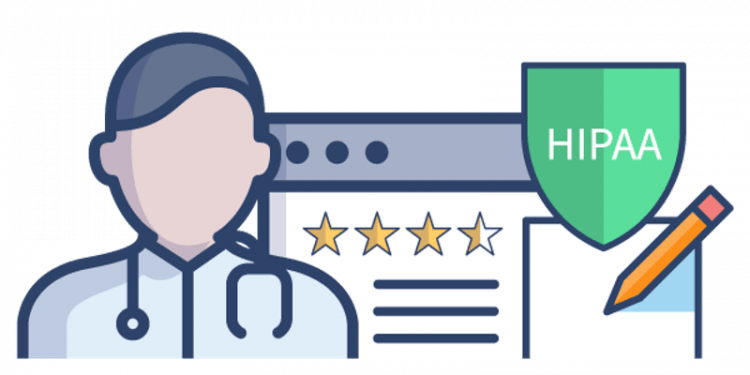By: Jack Kerwin
 Quality health insurance is, and will remain, one of the most valuable assets an American citizen can possess. Often perceived as a luxury born from large and wealthy companies, health insurance can be offered at the small business level. This blog post will discuss the advantages small business owners create by offering health insurance, explore the current options available, and explain how a new political landscape may shape the health insurance future.
Quality health insurance is, and will remain, one of the most valuable assets an American citizen can possess. Often perceived as a luxury born from large and wealthy companies, health insurance can be offered at the small business level. This blog post will discuss the advantages small business owners create by offering health insurance, explore the current options available, and explain how a new political landscape may shape the health insurance future.
why provide health insurance?
By law, the Affordable Care Act (ACA) does not require small businesses with fewer than fifty full-time employees to provide health insurance packages. However, providing health insurance as a small business owner with few full-time employees has many advantages and should be highly considered by entrepreneurs. Small business owners who provide health insurance may be eligible for lucrative tax benefits. If a business has fewer than 25 (but no less than ten) full-time employees, pays an average wage of less than $51,600 a year, pays at least half of employee health insurance premiums, and purchases group health insurance coverage through the Small Business Health Options Program (SHOP) Marketplace or through a licensed health insurance agent connected to SHOP, the small business can receive a sizable tax credit. Furthermore, employers can deduct 100% of the monthly premiums they pay on qualifying group health plans from their federal business taxes. Offering health insurance coverage to workers as part of their compensation also allows a business to reduce payroll taxes. Employers may also deduct health savings account contributions from their small business taxes.
Providing quality health insurance as a small business owner has the inadvertent benefit of attracting and retaining quality employees. A 2017 LendingTree survey found 33% of people have turned downed a position due to lack of health insurance. Americans care about quality health insurance and consider it greatly when applying for jobs. A small business owner who provides health insurance will attract a greater pool of candidates. Once hired, the small business owner is able to retain employees and avoid the high costs associated with hiring, onboarding, and training new workers. Finally, a small business owner that provides quality health insurance experiences happier, healthier, and more satisfied employees.
What are my options?
When the legislature passed ACA in 2010, the legislature also created SHOP. SHOP helps business owners with one to fifty employees offer health and dental insurance. SHOP is a point-of-service system small business owners use to look for insurance plans, compare rate and coverage terms, and purchase insurance. Essentially, it acts like an Expedia for health insurance. However, states differ on the implementation of health insurance. Pennsylvania utilizes Pennie, an insurance marketplace like SHOP but does not provide a small business program. Instead, Pennsylvania small businesses are encouraged to utilize group health insurance.
 Group health insurance provides employees the option to buy-in to an insurance plan offered by the business owner. A group health insurance plan provides coverage at a lower cost to members since the insurer’s risk is spread across a group of policyholders. Groups must be purchased by individuals and typically require at least 70% participation of group members. The primary advantage of a group health insurance plan is the dispersion of risk, allowing for lower premiums. In 2018, the average per-person premium for small group health insurance was $409 per month, compared to $440 for an individual. Small group health plans had an average deductible of $3,140 per month compared to $4,578 for individual plans. Prices for group health insurance will range depending on factors such as the number of employees and the businesses’ location. Many websites are available to provide free quotes on group health insurance costs.
Group health insurance provides employees the option to buy-in to an insurance plan offered by the business owner. A group health insurance plan provides coverage at a lower cost to members since the insurer’s risk is spread across a group of policyholders. Groups must be purchased by individuals and typically require at least 70% participation of group members. The primary advantage of a group health insurance plan is the dispersion of risk, allowing for lower premiums. In 2018, the average per-person premium for small group health insurance was $409 per month, compared to $440 for an individual. Small group health plans had an average deductible of $3,140 per month compared to $4,578 for individual plans. Prices for group health insurance will range depending on factors such as the number of employees and the businesses’ location. Many websites are available to provide free quotes on group health insurance costs.
President Biden, ACA revival, and small business stimulus
 Health insurance is one of America’s most debated subjects and has been at the forefront of national politics for years. Former President Trump cut the individual mandate penalty under the ACA with the passing of the 2017 tax bill, disincentivizing Americans to enroll in ACA coverage. President Biden is poised to reinstate the individual mandate, presumptively persuading many Americans to look into health care plans. Now more than ever, small business owners are in a prime position to offer health insurance. Today, as compared to the 1980s, Americans are spending twice as much on health care. U.S. health-care spending grew 4.6% in 2019, reaching $3.8 trillion, or $11,582 per person, according to the Centers for Medicare and Medicaid Services. Out-of-pocket spending grew 4.6% in 2019 to $406.5 billion, a rate of growth that was higher than the 3.8% growth tallied in 2018. The cost of ACA coverage may stay the same, rise, or contract. However, individually purchased insurance such as ACA coverage is likely to remain more than group health insurance. President Biden has also campaigned on the promise to better subsidize health insurance and reinvigorate small business growth through an expansive stimulus package. All of these factors indicate a small business owner would be in a better business and financial position if a form of health care is offered to employees.
Health insurance is one of America’s most debated subjects and has been at the forefront of national politics for years. Former President Trump cut the individual mandate penalty under the ACA with the passing of the 2017 tax bill, disincentivizing Americans to enroll in ACA coverage. President Biden is poised to reinstate the individual mandate, presumptively persuading many Americans to look into health care plans. Now more than ever, small business owners are in a prime position to offer health insurance. Today, as compared to the 1980s, Americans are spending twice as much on health care. U.S. health-care spending grew 4.6% in 2019, reaching $3.8 trillion, or $11,582 per person, according to the Centers for Medicare and Medicaid Services. Out-of-pocket spending grew 4.6% in 2019 to $406.5 billion, a rate of growth that was higher than the 3.8% growth tallied in 2018. The cost of ACA coverage may stay the same, rise, or contract. However, individually purchased insurance such as ACA coverage is likely to remain more than group health insurance. President Biden has also campaigned on the promise to better subsidize health insurance and reinvigorate small business growth through an expansive stimulus package. All of these factors indicate a small business owner would be in a better business and financial position if a form of health care is offered to employees.
conclusion
Whether a business is established, starting out, or a future dream, health insurance coverage deserves consideration when planning for success. A small business that provides health insurance can take advantage of prime tax incentives, draw and retain quality employees, and foster a productive work environment. The need for health insurance will never deteriorate completely and uniform federal care is constantly changing. Small business owners have an incredible ability to provide health insurance, an ability that should always be explored.
This post has been reproduced with the author’s permission. It was originally authored on February 10, 2021, and can be found here.
 Jack Kerwin, at the time of this post, is a 3L at Penn State Dickinson School of Law. Jack was born and raised in Central Pennsylvania. Following graduation, he will be working at the law firm of Kerwin and Kerwin. While at Kerwin and Kerwin, he will help establish, expand, and protect small businesses. Jack’s hobbies include fly fishing, running, going out to eat, and spending time with his fiancé, Katie, and his dog, Beau.
Jack Kerwin, at the time of this post, is a 3L at Penn State Dickinson School of Law. Jack was born and raised in Central Pennsylvania. Following graduation, he will be working at the law firm of Kerwin and Kerwin. While at Kerwin and Kerwin, he will help establish, expand, and protect small businesses. Jack’s hobbies include fly fishing, running, going out to eat, and spending time with his fiancé, Katie, and his dog, Beau.
Sources
Caitlin Bronson, The Tope 5 Small Business Health Insurance Options in 2020, PeopleKeep, (January 6, 2020), https://www.peoplekeep.com/blog/top-5-small-business-health-insurance-options-in-2020.
eHealth, 9 Reasons to Offer Small Business Health Insurance, eHealth (January 11, 2021), https://www.ehealthinsurance.com/resources/small-business/9-reasons-to-offer-small-business-health-insurance.
Julia Kagan, Group Health Insurance, Investopedia, (July 11, 2020), https://www.investopedia.com/terms/g/group-health-insurance-plan.asp.
Megan Leonhardt, Americans now Spend Twice as much on Health Care as they did in the 1980s, CNBC (October 9, 2019), https://www.cnbc.com/2019/10/09/americans-spend-twice-as-much-on-health-care-today-as-in-the-1980s.html.
Priyanka Prakash, Small Business Health Insurance Options for 2021, Fundera, (December 16, 2020), https://www.fundera.com/blog/small-business-health-insurance.
Sarah O’Brien, Biden is Pushing for Broader Access to Health Insurance. How you Might Benefit, CNBC (January 27, 2021), https://www.cnbc.com/2021/01/27/biden-healthcare-plan-insurance-benefits.html.
Stephen Miller, What’s Ahead for Health Care Under Biden?, SHRM (November 11, 2020), https://www.shrm.org/resourcesandtools/hr-topics/benefits/pages/whats-ahead-for-health-care-under-biden.aspx.








